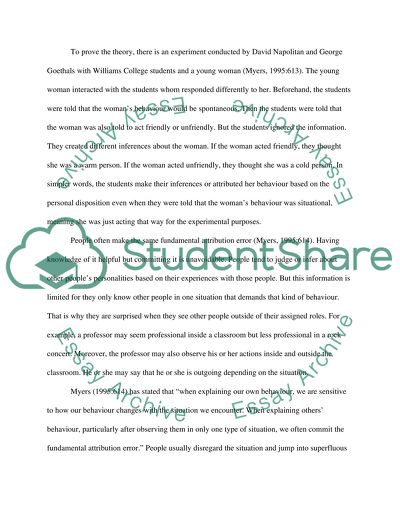Social Psychology and Ethics . What are attributions and why are they Essay. Retrieved from https://studentshare.org/miscellaneous/1554340-social-psychology-and-ethics-what-are-attributions-and-why-are-they-so-important-for-understanding-human-behaviour
Social Psychology and Ethics . What Are Attributions and Why Are They Essay. https://studentshare.org/miscellaneous/1554340-social-psychology-and-ethics-what-are-attributions-and-why-are-they-so-important-for-understanding-human-behaviour.


